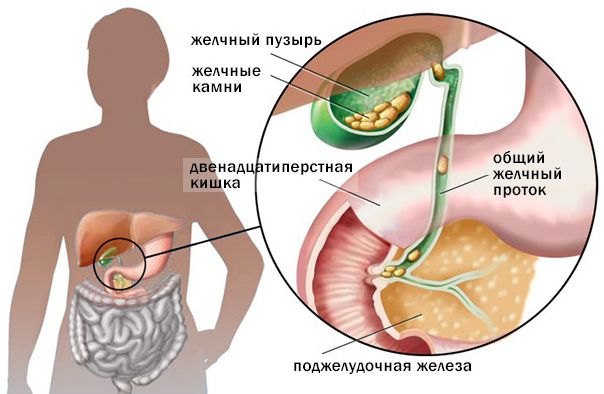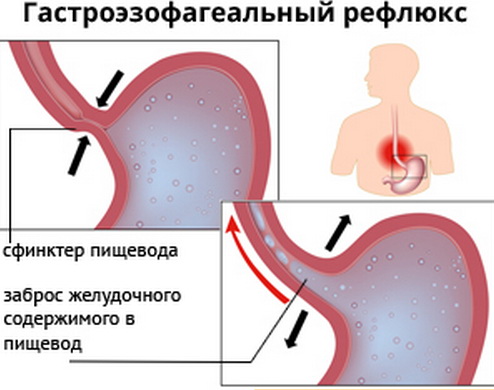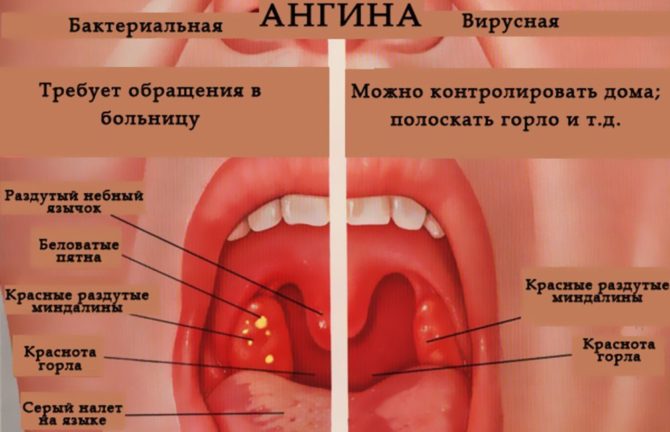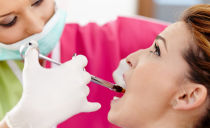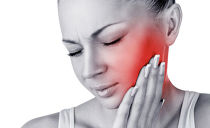Bad taste in the mouth and its causes
Strange taste sensations are a group of multifactorial abnormal conditions, the appearance of which is associated with the development of a number of ailments in the human body. The cause of an unpleasant aftertaste in the mouth, observed after waking up or eating food, can be dangerous diseases, fraught with complications or even death. Therefore, it is impossible to ignore malfunctioning of the receptor apparatus in any case.
Content
The list of factors causing strange taste sensations
A strange taste is a non-specific symptom detected in diseases of the gastrointestinal tract and oral cavity, a malfunction in the liver, impaired cerebral circulation, and localization of infectious agents in the upper respiratory tract.
Additional causes that contribute to the appearance of an unpleasant taste in the mouth include:
- Taking medications, mainly antibiotics. A side effect of most antimicrobials is a violation of the body's natural microflora, the development of dysbiosis and candidiasis of the mucous membranes. The negative effect of drugs is accompanied by the appearance of a strange taste. Discomfort can also be triggered by the presence of individual intolerance to the components of the tablets, the death of pathogens, exacerbation of chronic ailments.
- Dehydration. An unpleasant taste that appears in the mouth periodically may be due to a lack of fluid in the tissues of the organs. Water deficiency occurs with the abuse of carbonated drinks, alcohol, tea, coffee.
- Metal poisoning: mercury, arsenic.
- Incorrect oral care. Improper hygiene is among the causes of an unpleasant aftertaste in the mouth in the morning and exacerbating discomfort at the end of a meal.
- Smoking
- Oncology. Malignant tumors localized in various organs can provoke an unusual taste, bad smell. Among such neoplasms are cancer of the lungs, liver, and soft tissues of the mouth.
- Features of food: constant overeating, unbalanced menu, eating food at night.
The bad taste that appears in the mouth can be accompanied by a number of additional signs: fetid odor, deposits on the tongue, dry mucous membranes, belching, discomfort in the stomach, flatulence.
The reactions of receptor zones to the development of abnormalities in the body are differentiated into several types. Among the most common is the appearance of a sour, sweet, metallic, salty or bitter aftertaste. Sometimes patients of a medical clinic complain about the appearance of a taste of mold, pus or soda, localized in the throat, on the tongue and lips.
If the strange taste that occurs in the mouth is transient, then you can eliminate the symptom yourself. The development of special physiological conditions, accompanied by the appearance of the discomfort in question (menopause, heavy menstruation), requires the supervision of a specialist. If an abnormal taste arises that is permanent, you should immediately consult a doctor.
Taste of bitterness in the mouth
The exact answer to the question why a bitter taste appears in the mouth can only be given by the attending physician.Such a distortion of taste perception often signals violations in the functioning of the liver, gall bladder, stomach, intestines. Among the diseases - chronic cholecystitis, biliary dyskinesia. Additional causes of pathology include smoking, prolonged medication, constant stress, eating fatty foods, fried meat.
The manifestation of a bitter aftertaste is associated with the penetration of bile (containing food masses) from the digestive tract into the esophagus. Symptom manifests itself mainly in the morning and after eating.
Taste of salt in the mouth
Experts identify 2 main reasons for the formation of the considered anomaly - non-compliance with the basic rules of oral hygiene and prolonged dehydration, which provokes the accumulation of salts. The described change in taste perception may indicate a latent course of some ailments:
- sinusitis;
- failure in the functioning of the kidneys;
- sinusitis;
- pathology of the salivary glands.
A secondary cause of salty smack in the mouth is trauma to the nose, gums, tongue, teeth, soft palate, accompanied by bleeding. The composition of the blood plasma includes sodium chloride, therefore, its contact with the microvilli of taste analyzers causes a salt taste.
In addition to the above, a strange taste sensation can occur when using a number of drugs (injections, tablets) that are used in cancer therapy regimens, as well as with the onset of menopause.
Sour taste in the mouth
The most common factors that activate the formation of an unpleasant odor and the appearance of an acidic taste in the mouth include diseases of the biliary system, pathological changes in the digestive tract (gastritis and ulcers).
Inflammation and the formation of defects on the inner membranes of the gastric walls leads to the production of large amounts of gastric juice. Normally, the multicomponent fluid does not penetrate the limits of the muscular organ, but with the development of various disorders, the contents of the stomach (food and acid) are thrown into the esophagus bordering the throat.
In addition to the appearance of an unpleasant taste of sour milk in the mouth, with gastritis there are heartburn, belching, pain in the epigastrium. At the doctor’s appointment, men and women complain of stinking of hydrogen sulfide breathing, general weakness, worsening condition. Symptoms of the clinical picture of progressive peptic ulcer are similar to the above symptoms.
In addition to gastritis and ulcers, the appearance of an acidic taste can be caused by the oxidation of orthodontic structures (prostheses, crowns) made from low-quality materials. Violation of the structure of products, which results in an acidic taste in the mouth, occurs under the influence of components of saliva, with improper use of devices.
Additional factors causing the formation of an acidic taste are dehydration, advanced caries, gum disease, intramuscular and intravenous administration of nicotinic acid. Find out why in the morning and after eating food it becomes sour in the mouth, after visiting a therapist, dentist, gastroenterologist.
Sweet taste in the mouth
The sweet taste felt in the morning in the area of the tongue is a symptom that signals the appearance of diabetes mellitus, neurological disorder, digestive system disease (ulcers, gastritis, pancreatitis, GERD), the thyroid gland or respiratory system (pneumonia, bronchitis).
In addition, the occurrence of an unpleasant sensation may be due to the growth of colonies of microorganisms in the oral cavity. The presence of a sweet taste, pain and bleeding is often told by patients of dentists.
The sweet taste in the morning, accompanied by bad breath, can be due to chemical poisoning, metabolic disorders, and smoking cessation. Among patients visiting specialists complaining of a milky-sweet taste in the oral cavity are people who consume too high-calorie foods, pregnant women.
Metallic taste in the mouth
The taste of metal can occur under the influence of factors conditionally differentiated into 5 groups. The first includes pathologies localized in various organs. Among them:
- dental diseases: periodontal disease, gingivitis;
- digestive system pathologies: chronic gastritis, pancreatitis, ulcer;
- diabetes;
- liver dysfunction;
- anemia;
- cancer.
The second list of prerequisites includes poisoning with various toxic substances. Among the factors belonging to the third category are the prolonged use of statins, antihistamines, hormonal contraceptives, which are produced in antibiotic tablets: Amoxicillin, Metronidazole and its analogue Trichopolum. Infusions of antibacterial drugs are characterized by the presence of fewer side effects.
Changes in the sensitivity of receptors periodically occur with the oxidation of orthodontic appliances, the constant wearing of iron jewelry - piercing lips, tongue, wide bracelets.
The fifth group of causes causing a metallic taste includes special conditions - pregnancy, menopause, menstruation. For a number of women, the feeling of metal in the mouth accompanying a change in the hormonal background is a physiological norm.
Taste of mold, soda, pus, medicine in the mouth
The answer to the question why there is a taste of pus in the oral cavity is very simple: this symptomatology is noted mainly in dental pathologies (periodontitis, alveolitis) and inflammatory processes in the throat (laryngitis, pharyngitis, tonsillitis).
The cause of the taste of the medicine in the mouth is tooth filling. The symptom is transient and does not require additional medical examinations.
To find out why there is a sensation of soda in the mouth, a study of the liver and bile ducts will help - a malfunction of these areas leads to the development of a specific taste. The symptom, accompanied by a heavy, putrid odor, fever and bouts of vomiting, indicates an excess of iodine in the tissues of the organs.
When a person notices the appearance of an unpleasant taste of mold in the mouth in the morning and during the day, it is recommended to carefully examine the living room - the presence of increased concentrations of Aspergillus niger fungus contributes to the development of the symptom. Black Aspergillus is one of the most dangerous allergens; infection with its spores can be fatal.
Briefly about diagnosis and treatment
Finding most of the symptoms described requires contacting a medical facility. To exclude the possible development of dangerous ailments, the patient will need to visit a therapist, an infectious disease specialist, a gastroenterologist and a number of narrowly specialized doctors.
The diagnosis and the appointment of treatment is carried out after a survey and examination of the patient, obtaining the results of additional studies. Among the latter:
- general and biochemical blood and urine tests;
- Ultrasound of the abdomen;
- MRI
- radiography;
- PCR diagnostics.
Having found out why the discomfort appeared, the doctor develops a treatment regimen for the disease. The relief of ailments disturbing the patient is carried out by using anti-inflammatory drugs, antibiotics, hormonal drugs. Treatment is carried out taking into account the age of the patient, his condition, the presence of a history of chronic ailments. Recovery time varies depending on the form and type of pathology.
A favorable outcome of the identified disease is possible only with an early visit to a doctor, the absence of self-medication and compliance with all the recommendations of the clinic employee.


